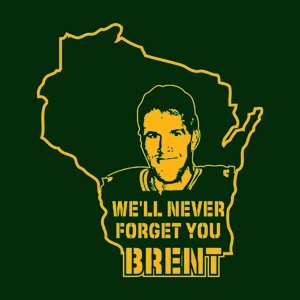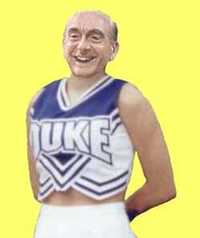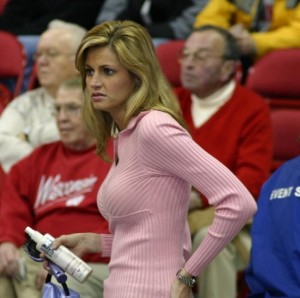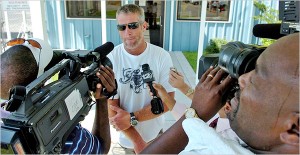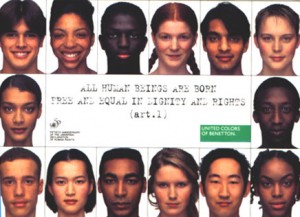By Paul M. Banks
Brett Favre’s incessant media circus and Peyton Manning’s undefeated Colts have put national spotlight on the Midwest, I discuss this and the future of sports media with Midwest Sports Fans.com’s Jerod Morris.
(PMB) Last weekend, I was at a party and referred to ESPN as Eastern Seaboard Programming Network, as I always do. Someone said to me non-jokingly, “Is that what it really stands for?” And with the non-stop emphasis on New York Yankees-Boston Red Sox, Duke-North Carolina and the unhealthy man-crush that they (along with seemingly every other journalist in this country) seems to have on Florida QB Tim Tebow, I do wonder if it’s literally true.
Of course, they also unjustifiably blanket teams like USC and Notre Dame which appeal to large numbers of frat boy front-runner types who don’t really like sports, but pretend to. Your thoughts on bias, East Coast or otherwise?
(JM) By now I think it is pretty clear to everyone that a strong bias exists not just at ESPN but at all major television networks; and the bias can be boiled down into one nice, neat, tidy word: ratings.
ESPN is no longer just the upstart underdog from Bristol. They are now a Disney-owned, worldwide conglomerate with serious stakeholders to answer to. No longer can they be “every sports persons’ network”; rather, they must be “every sports plurality’s network”, and by this I mean that they must, in the majority of cases, broadcast whatever they can get their hands on in each time slot that will drive the highest ratings.
We can bitch about it all we want (and we do!) but Yankees-Red Sox will always drive more viewers than White Sox-Twins, no matter how good the teams are. Duke-North Carolina will always drive more visitors than a game for first place in the Big Ten between Michigan State and Purdue. It is what it is. And it just so happens that most of the ratings drivers are East Coast-based teams and the majority of the country is on Central or Eastern time.
I would think that by now sports fans would be conditioned to the reality that sports is a business. We hear the athletes say it all the time, and I think that despite our frustrations we have to understand that the same is true for those who broadcast them.
And if we don’t like it, there’s always the Big Ten Network!
(PMB) As polarizing a figure as Brett Favre is, and he’s certainly done a few things to warrant that hatred people have of him, he made the 1600lb. gorilla in the sports media room ESPN focus on the upper midwest, Wisconsin and Minnesota particularly, and that never happens. Was this a good thing for Midwestern sports fans? Not just for your site, but also actual people who can legitimately be described with this designation?
(JM) I guess it depends on whether you were in Minnesota or Wisconsin.
It has been great for Minnesota. Not only has Brett Favre’s arrival created more excitement in the city, but the team has a serious shot to be playing playoff games at home and possibly even go to a Super Bowl. And think about how much revenue was generated just from the reporters being dispatched to the Twin Cities to cover the Favre saga. I may stereotyping here, but I’m going to go out on a limb and say that most sports reporters can eat; the restaurants were no doubt pleased.
Wisconsin, on the other hand, lost one of their favorite sports idols to a rival. So they couldn’t be too happy and it’s doubtful they see it as a “good thing”.
In all seriousness, I’m not sure what the Favre story really does for the Midwest per se because anything involving Favre is such a national story now. I’m sure that Vikings and Packers blogs, plus the papers that cover the two teams, enjoyed a nice spike in eyeballs but the real winner was the NFL. Favre = ratings, jersey sales, and ticket sales. Cha-ching.
(PMB) You became somewhat of a sports media star this past summer, even appearing on ESPN Outside the Lines. I know you’ve likely told the story a million times, so I apologize, but please tell us what you learned from the experience and how you use those lessons today…
(JM) I learned more than anything that I’m not just writing in my own little personal sports diary at MSF. Every word I write is open to be consumed by anyone on the web, and that includes the possibility that my meaning could be misunderstood as well as the chance that real lives can be affected by what I write.
Bloggers may not be journalists, nor ever aspire to be, but the platform – especially if you are actively promoting yourself to drive traffic – should compel us all to be accountable for what we say. I don’t believe that means that bloggers should necessarily be held to the same standards and “rules” as the mainstream media, but I do believe that there is a minimum level of accountability that any person publishing work for public consumption should adhere to.
Fortunately, I felt no need to back down from or apologize for the spirit of my post, and that is one thing I always make sure of now before I hit “publish”: am I prepared to defend these words if necessary? If I believe in what I am saying and am writing without malice, I am confident in the final result.
The whole Ibanez situation helped me to realize this.
(PMB) One thing that was sort of lost in the experience was your personal story, as well as that of your site, Midwest Sports Fans
(JM) It’s pretty simple really. I grew up in Indiana, lived in the Midwest my entire life save for a few years down in Miami after graduating college, and am a devoted fan of the Hoosiers, White Sox, and Browns…an eclectic mix to be sure.
Once I moved to Dallas in April in 2008, I wanted a way to stay connected to my Midwestern roots. I started working for a social media and online reputation management firm and starting MSF ended up being a great way to get hands-on experience with what we were doing.
It’s been a labor of love that I’ve truly enjoyed ever since.
(PMB) So you must truly know a lot about SEO then. Everyone has been beaten over the head with the story of newspapers dying out. But what do you see as the future of sports media? What might the next apparatus to die out after print? And also, no a brighter note, what do you envision as the future of the industry to be? Beyond “blogging” of course.
(JM) The future is that we are going to continue to see the lines blurred…between everything.
National writers put things into national perspectives. Local writers obviously localize the perspective. The local papers are already on thin ice as it is; if the ESPNs continue stealing their readers, how will they survive?
And, of course, blogs are a part of that. But I don’t see it as a zero sum game. If the MSM sees blogs as a threat, rather than an opportunity, they will get killed. The same is true for blogs with the MSM and other blogs. More synergy will lead to better, more intertwined, richer content. If the user experience is enhanced, the time spent will increase.
I think this is a formula still to be unlocked.
In general, I think we are going to continue to see fragmentation of coverage with more and more specialization, which I think will ultimately lead to a better product for consumers. Those who are forward-thinking and strategic enough to build strong revenue models around the content will prosper. Others will fall by the wayside, and it should be clear by now to everyone that clinging to the status quo is a recipe for doom.
(PMB) Very true, less than 100% of sportswriters today have the luxury of making a living with the old “just write your story and send it in” approach that I was trained with in the newspaper industry. Those days are dinosaur.
Readers, be sure to check out Midwest Sports Fans.com early and often!
